Political Maturity and constancy in Democratic Process
After the death of Quaid-e-Azam in September 1948, Liaquat Ali Khan becomes Prime Minister of Pakistan. But unfortunately in October 1951, his term was cut petite by an assassin’s bullet at Rawalpindi Liaquat Bagh. The constancy and potency of the central government in the early years was in marked distinction to the state of interaction in the provinces. The first Provincial elections took place in the Punjab in 1951. The Muslim League was the main political party besides six others that took part in election campaign. The Muslim League’s victory was largely the result of the vigorous campaign led by the Prime Minister in the Provinces. In March 1949, the objective resolution laid the foundation of a constitution. It resolves the principles of democracy, freedom, tolerance, justice and equality. But objection was taken to both houses having equal power. Nix industrial and social changes were undertaken. The internal strife of the politicians cemented way for the elite privileged to gain superiority. The self seekers filled up all the high posts and opened the way of nepotism, bribery and corruption. Nazimuddin was nominated ruling Muslim League party as the Prime Minister. Unfortunately situation did not favor Nazmuddin when he took over Prime Ministership. As the Prime Minister when he visited East Pakistan he made a serious mistake by declaring that Urdu alone would be the state language of Pakistan. This declaration sparked the language movement.Governor General Malik Ghulam Muhammad took the bizarre step and dismissed the Prime Minister Khawaja Nazimuddin and his Cabinet on April 17, 1953. The reasons proffered for sacking Nazimuddin were his deprived handling of language riots in East Pakistan, grave food situation, aggravation law and order and his over all uncertain position over matters of national substance. Further grave was the ruling party compression of the Governor Generals act by accepting the appointment of new Prime Minister Muhammad Ali Bogra. It is important to note that no member of cabinet resigned in protest against the Governor General’s actions.
One thing eminent here that Muhammad Ali Bogra was flown in from Washington where he was Pakistan’s Ambassador. He dissolved the Constitution Assembly and stated that the making of the constitution was one of his key targets. His constitutional proposal known as the Bogra Formula was presented before the Constituent Assembly of Pakistan on October 7, 1953. The Bogra formula was liked by different sections of the society. However before the constitution could be finalized the Assembly was dissolved by Ghulam Muhammad, the then Governor General of Pakistan. Chaudhary Muhammad Ali was appointed as the new Prime Minister on August 11, 1955. His great achievement was framing the Constitution of 1956 and its approval by the Constitutent Assembly. His greatest blunder was the selection of Dr. Khan Sahib as Chief Minister of the Unified Provence of West Pakistan, despite the opposition of the Muslim League. Khan Sahib was an old Congressman who had opposed the creation of Pakistan. However Khan Sahib enjoyed the support of the President Iskander Mirza, Muhammad Ali Bogra resigned as a Prime Minister on September 8, 1956, also resigning from his membership of the Muslim League at the same time. His verdict to resign of his own accord is measured as a sole example of political etiquette in the history of Pakistan. Iskander Mirza was a civil servant he confirmed as the fourth Governor General of Pakistan on October 4, 1955. Iskander Mirza was also a great advocate of the One Unit scheme and it was under his rule that all the four Provinces and the states of West Pakistan were merged into one unit in October 1955. Iskander Mirza thought that politicians should be given the power to make policy but not allowed to intervention in government. Huseyn Shaheed Suhraward became Prime Minister on September 12, 1956.
He replaced Chaudhary Muhammad Ali as Prime Minister. Suhrawardy tried to remove the economic disparity between the Eastern and Western wings of the country but to no avail. He also tried unsuccessfully to alleviate the food shortage in the country. By early 1957, the movement for the dismemberment of the one unit had started. Suhrawardy was at the mercy of central bureaucracy fighting to save the one unit. President Iskandar Mirza demanded the Prime Minister’s resignation. Suhrawardy resigned under threat of dismissal on October 10, 1957. President Iskandar Mirza appointed I.I. Chundrigar as the interim Prime Minister being a nominated Prime Minister. On December 16, 1957, Malik Feroz Khan Noon was the last in the line of Prime Ministers under the President Ship of Iskander Mirza. During this period tussle of power both east and west wing reached a critical point. Under these circumstances of political instability, President Iskander Mirza turned towards General Ayub Khan. At midnight between October 7, and 8, 1958, the President of Pakistan abrogated the Constitution and imposed Martial Law in the country. The term of Malik Feroz Khan Noon lasted for less than a year. The Parliamentary Government came to an end in Pakistan.
In sum Quaid-e-Azam died in September 1948 and in October 1951, Prime Minister Liqat Ali Khan was assassinated. The dual hard luck creates a vacuumed in political leadership. Khwaja Nazim-ud-Din who was than the Chief Minister of East Bengal resigned his office to become the second Governor General of Pakistan. Malik Ghulam Muhammad a civil servant bowed politicians. He struck first at Prime Minister Nazim-ud-Din in April 1953 and later itself to establish the supremacy over the legislature and the bureaucracy over the politicians. A fight was reached which was not ended until the politicians and he vanished from the scene and the Army emerged as the major force to assume control of the state. For the duration of 1958, the bureaucracy was in the superiority with her politicians singing a subsidiary role.
Again Democratic period Benazir Bhutto and Nawaz Sharif
Benazir Bhutto becomes Prime Minister 1988, and Ghulam Ishaq Khan becomes President of Pakistan. Differences arose between the P.P.P government and the Establishment. Benazir Bhutto’s government ongoing in front of problems on the political frontage. Ghulam Ishaq Khan appointed Benazir Bhutto as Prime Minister of Pakistan on the condition that she would offer full support to him in the forthcoming Presidential elections. According to the deal Ghulam Ishaq Khan winning and securing the highest votes. Constitutional Amendments made by the R. C. O. and the Eighth Amendment that had given the President a great deal of power. The conflicts between the President and Prime Minister aroses in two areas, the appointment of the Military Chiefs and the Superior Court Judges. On August 6, 1990, President Ghulam Ishaq Khan exercised his supremacy through the controversial Eight Amendment of the Constitution. President Ishaq Khan appointed Ghulam Mustafa Jatoi as the caretaker Prime Minister. Elections were scheduled to be on October 24, 1990. Mian Nawaz Sharif was elected as the Prime Minister on November 1990. Nawaz Sharif made efforts to strengthen the industrial sector with the help of the private sector. His important contribution was economic progress despite U. S, sanctions on Pakistan through the pressler Amendment on sanctions. President Ishaq Khan dissolved the Nawaz Sharif government on April 19, 1993. Balakh Sher Mazari’s tenure ended on May 26, 1993 as a caretaker Prime Minister of Pakistan. The Supreme Court of Pakistan declared this action unconstitutional and ruled for restoring the Nawaz Sharif government. But of the serious differences both President and Prime Minister resigned.
Here question arises why democratic government failed to accept the Supreme Court decision and failed to save the democratic process again. Extreme of power and imbalance of powers create the harms and damage the shape of democratic process. Moin Qureshi top World Bank Officer was appointed as the Caretaker Prime Minister and Ghulam Ishaq Khan was appointed as the caretaker President. His short tenure of 90 days. He undertook many steps. His effort to expose the misdeeds of the previous governments by publishing the list of defaulters of bank loans and taxpayers. In a short period of time he made serious efforts to recover government’s dues. It is important to note when both Nawaz Sharif and Ishaq Khan resign again as a caretaker President is against the spirit of democratic norms and harm the integrity.
The elections were held on October 6 and 9, 1993. The M.Q.M boucotted the elections no party emerged with an absolute majority. On October 19, 1993 Benazir Bhutto took oath as Prime Minister. November 13 Farooq Ahmed Leghari won votes against Wasim Sajjad. Benazir Bhutto again faced troubles from the opposition. He faced problems like train march, wheel jam and general strike etc. Assassination of Mir Murtaza Bhutto under mysterious circumstances and high profile killing damaged her political career. Differences soon appeared on political matters like Mehran Bank Scandal and inappropriate oppointments in the judiciary create tussle between President and Prime Minister. Lastly President Farooq Ahmed Leghari on November 5, 1996 dismissed Benazir Bhutto’s government on charges of corruption and micmanagement It is important to note that again own President use the 8th Amendment. It is necessary to seek out the reasons, if our leaders not across their limits and use their power according to their rule and laws then they save the democratic system. Malik Meraj Khalid held the office of Caretaker Prime Minister from November 5, 1996, to February 17, 1997. Again we can see the same charges of corruption and extra judicial killing. Second Time Mian Nawaz Sharif was re-elected as Prime Minister. Many important Constitutional Amendments were introduced during Nawaz Sharif’s second term. He faced serious confrontation with judiciary and the Executive and lastly resignation of President Leghari on December 2, 1997.
Through the Thirteenyh Amendment the controversial Eighth Amendments was replaced and thereby the President was divested of much discretionary power in order to restore the supremacy of the Parliament. The presidential election was held on December 31, 1997 and Muhammad Rafiq Tarar was elected President. He was honest, and devoted to justice. Major achievement during this term that Pakistan carried out its nuclear tests on May 28, 1998. During this term the Kargil Operation led to tense relations between Nawaz Sharif and the armed forces. This tension bringing to an end the second term of Nawaz Sharif by General Pervez Musharraf on October 12, 1999.
Under President Zardari's leadership, Compare with past Governments
Syed Yousaf Raza Gillani elected Prime Minister of Pakistan. The P.P.P government has coalition government in all the four provinces of Pakistan. President Asif Ali Zardari was elected President of Pakistan. He took oath of his office on September 9, 2008 at the Aiwan-e-Sadar, Chief Justice Abdul Hameed Dogar administered the oath. Today conflicts with the coalition continued. Friction between Zardari and Sharif intensified when the Supreme Court voted to disqualify Nawaz Sharif’s brother from the position as Chief Minister of the Punjab. Shortly therefore Nawaz Sharif’s brother was also returned to his position. We can see the political maturity and constancy in democratic process. Tussle between center and province Punjab showed some maturity and constancy. When we evaluate the past 1953, and Governor General dismissed the Prime Minister on the charges of grave food situation and aggravation law and order. Huseyn Shaheed Suhraward faced the same crises and dismiss because he tried unsuccessfully to alleviate the food shortage in the country. Today Pakistani nation not only faced food crises but also water, sugar, gass, energy and petroleum are major crises. Energy crises are a big gift of present government which injures the all machinery of a country. Now when we compare President Asaf Ali Zardari with past President Ghulam Ishaq Khan we can see more political maturity and it is a good step for stable democratic process. But this maturity is only for top level.
Now we turn the Nawaz Sharif and Benazir Bhutto’s period and compare with present again we can see maturity in four provinces peoples protested against wrong policies of present government but not reached extreme stage. Like the 1988 to 1999, period the Army chiefs have emphasized professionalism and avoided direct involvement in politics. Today present government and M.Q.M both consensus on N.R,O major reason is self benefits and safety of both siders. It is important to note that the support of army is tactical and they are central to the political process.
Now we turn the other side of this picture at bottom level is exploitation of rule and law and active role of the non-democratic elements. Our top leaders more mature in equality, dishonesty, bribery and misuse of law and regulation. They are more mature in power sharing both centre and province level elements involved in ugly game. Today peoples are more awareness and raised their voice against unjust system and kindness of top leaders. In sum in political maturity and constancy in democratic process not one leader, politician or political party involved. Many other practicalities play their role like Bureaucrats, Media, technocrats, scholars and army play active role in maturity and constancy in democratic system. Without nation-hood loyalty with nation, justice and self assessment in right way our leaders, politicians, bureaucrats and Army has not successfully managed to tackle the problems of legitimacy by establishing a civilian rule of its own choice.

















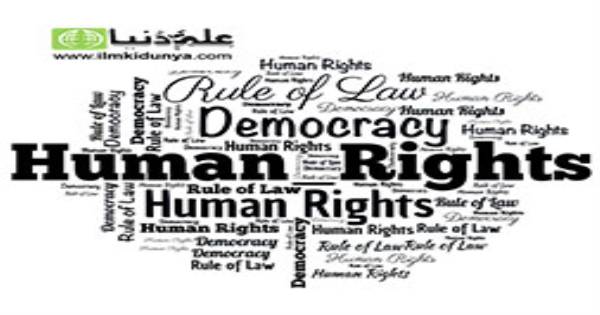
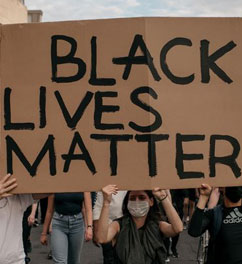

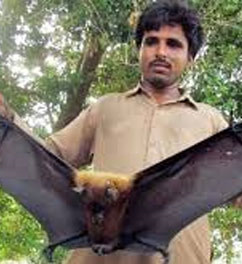
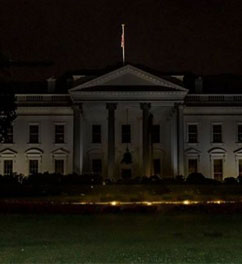
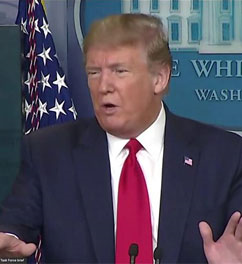




.jpg)















